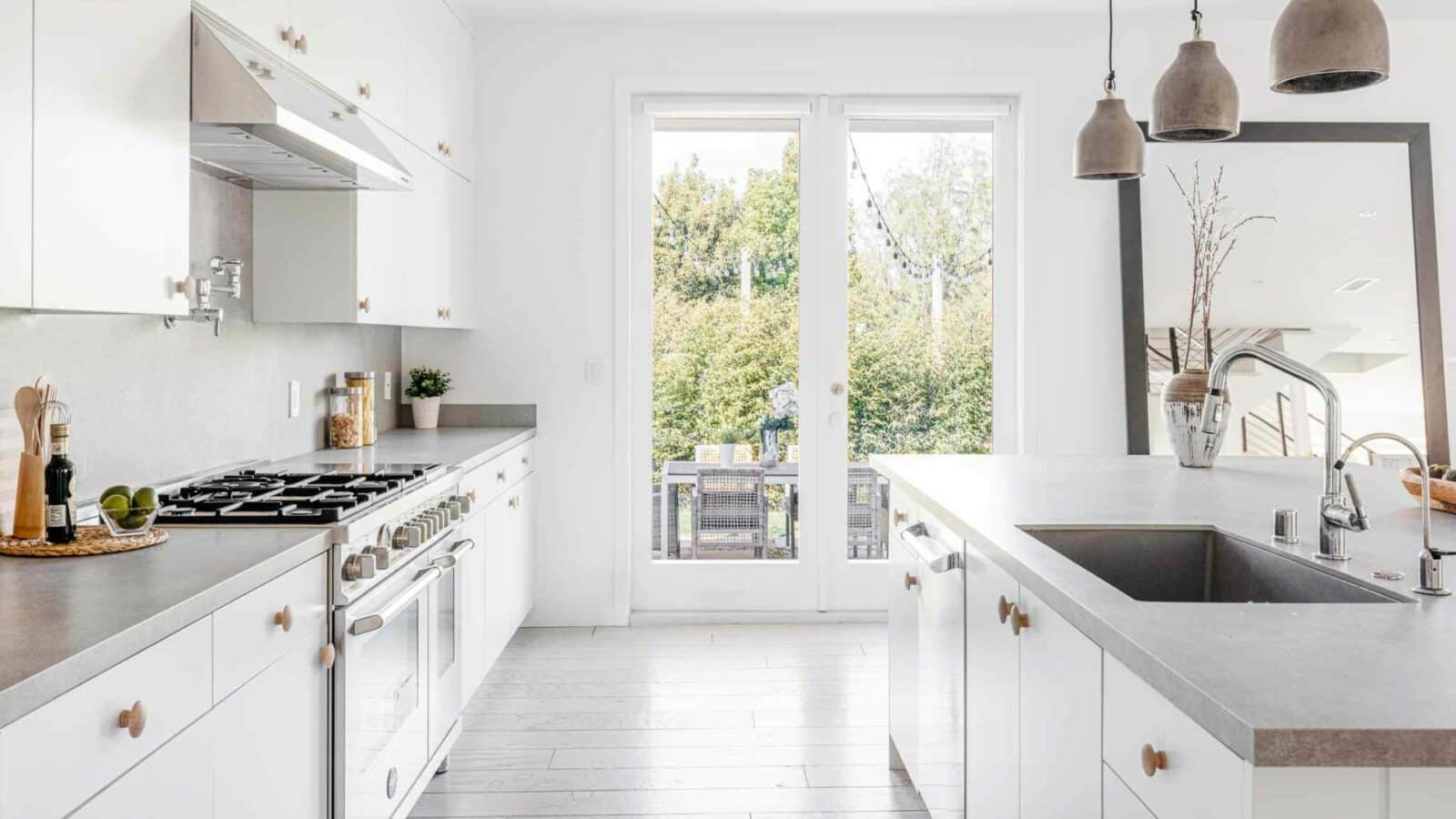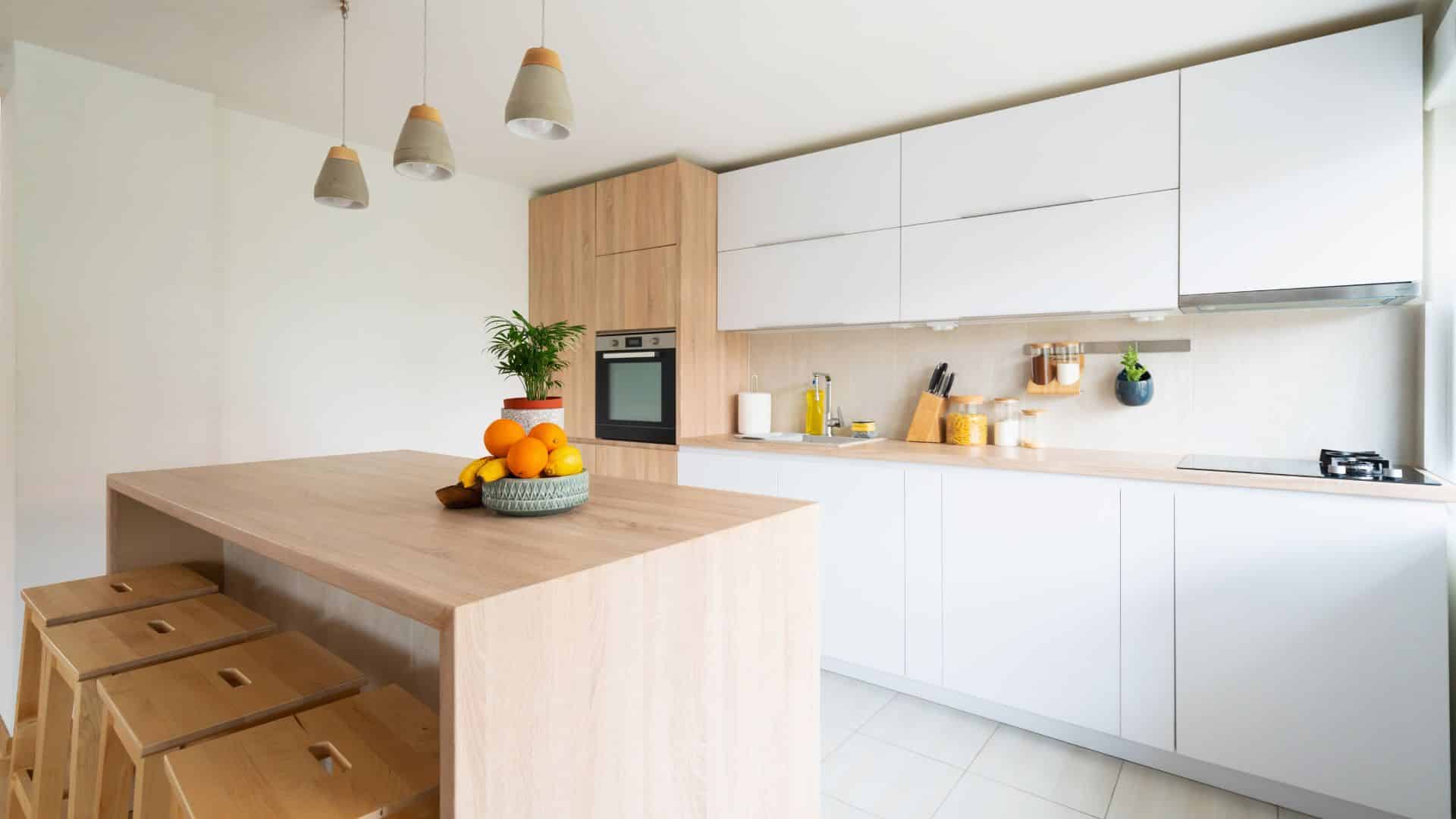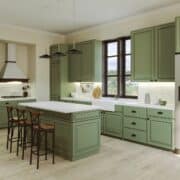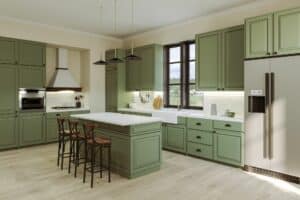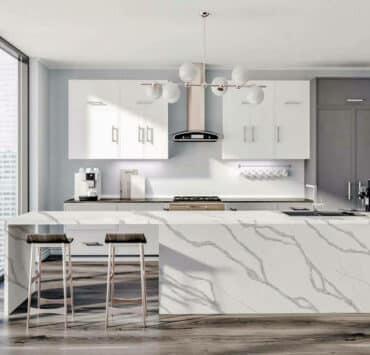In kitchen and bathroom makeovers, concrete countertops are a top pick because they’re both tough and flexible. This smart choice brings together practical use with great looks, making it a favorite for people who want their homes to be both useful and stylish.
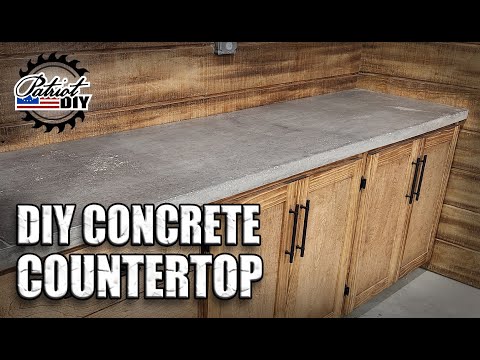
The Appeal of Concrete Countertops
- Customization Galore: Unlike traditional materials, concrete offers unparalleled customization in color, shape, and finish.
- Durability: Concrete counters are known for their ability to withstand the rigors of daily use.
- Heat and Scratch Resistance: These surfaces handle hot pans and minor abrasions with ease, making them practical for both kitchens and bathrooms.
Concrete countertops bring a unique character to any space, adaptable to any design style from industrial chic to modern minimalism.
Incorporating Concrete into Remodeling Projects
Kitchen and bathroom remodels often seek to balance aesthetic appeal with practicality. Concrete countertops excel in both, offering:
- Aesthetic Versatility: Whether you prefer an earthy, natural look or a polished, refined finish, concrete can be tailored to meet your design vision.
- Sustainability: With the option to incorporate recycled materials, concrete countertops can be an eco-friendly choice.
- Longevity: Properly sealed and maintained, concrete surfaces can last a lifetime, making them a cost-effective option in the long run.
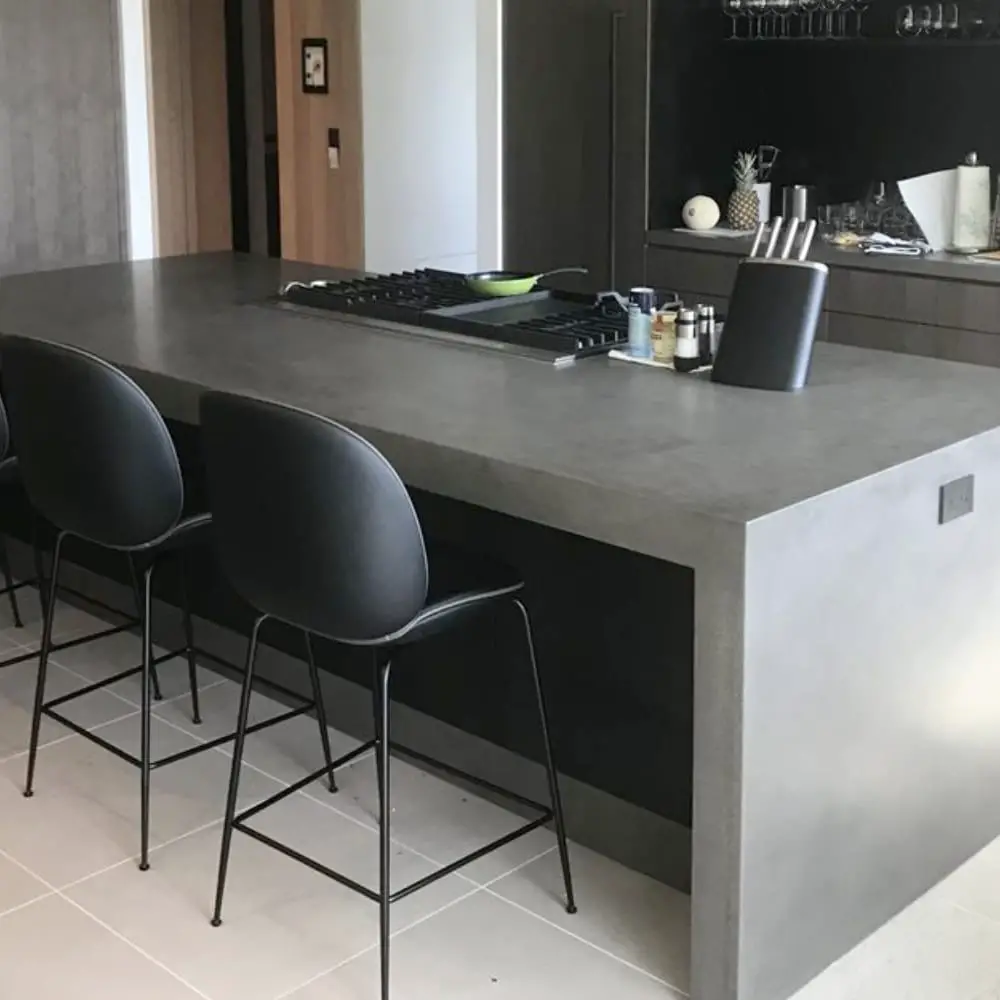
Common Considerations
While concrete countertops are innovative and versatile, it’s essential to be aware of a few considerations:
- Weight: Concrete is heavy, requiring sturdy cabinet and support structures.
- Porous Nature: Without regular sealing, concrete can absorb stains and liquids.
- Customization Time: The bespoke nature of concrete countertops means they can be more time-consuming to create and install than off-the-shelf options.
Pros and Cons
| Pros | Cons |
| Highly customizable in color, shape, and finish | Heavy, requiring sturdy support structures |
| Durable and able to withstand daily use | Porous nature requires regular sealing to prevent stains |
| Resistant to heat and minor scratches | More time-consuming to create and install than prefabricated options |
| Eco-friendly options with recycled materials | Initial cost can be higher due to customization |
| Unique aesthetic appeal for any design style | May develop cracks or chips over time if not properly maintained |
| Can last a lifetime with proper care | Limited color options compared to other materials like quartz or granite |
Cost of Concrete Countertops
- Base Cost: On average, concrete countertops can start at around $65 to $135 per square foot. This price includes basic fabrication and installation.
- Customization: Custom features such as unique colors, embedded items (like glass or stone), unusual shapes, or specialized finishes can increase the cost significantly.
- Labor: The skill level and experience of the craftsman, as well as regional labor rates, can greatly affect the overall price. Artisans who offer highly customized designs may charge more.
- Installation: The weight of concrete countertops requires proper support and installation by experienced professionals, which can add to the cost.
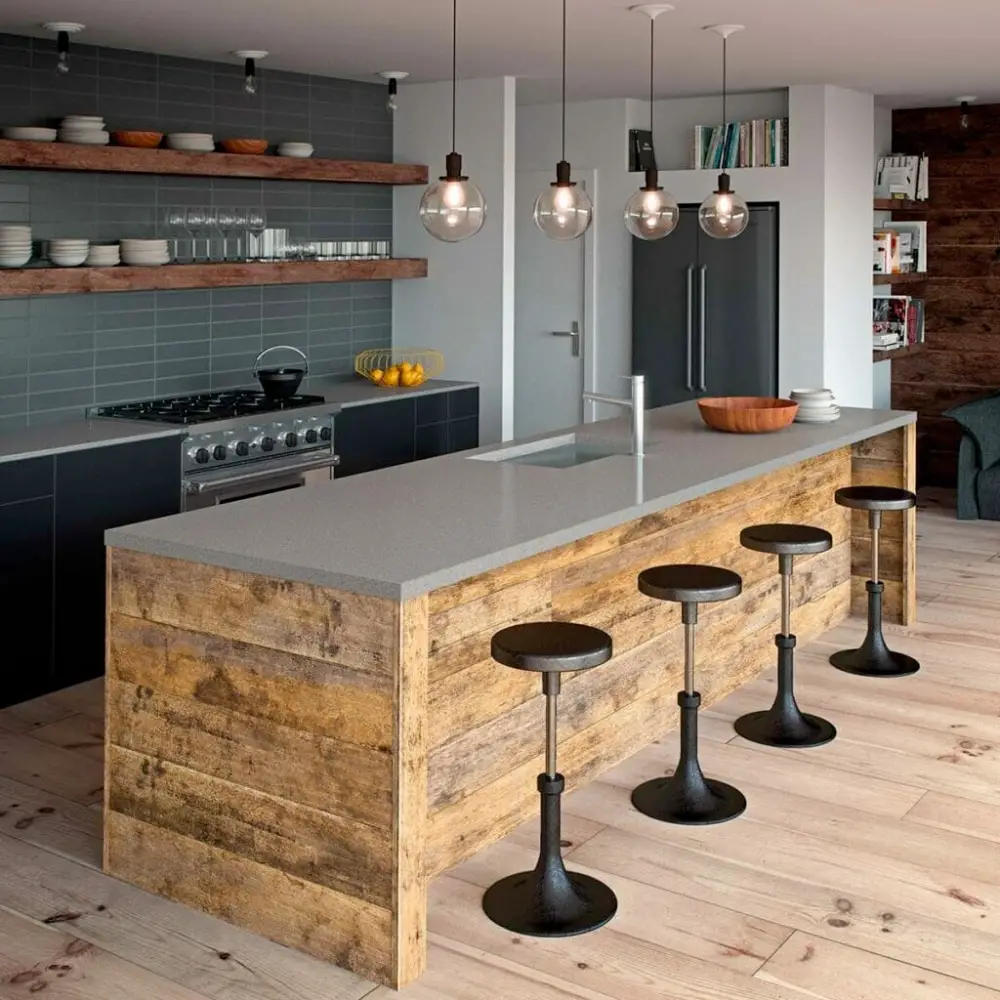
Maintenance and Sealing of Concrete Countertops
- Sealing: Concrete is naturally porous, making it susceptible to staining from spills. To prevent this, countertops need to be sealed upon installation and then resealed periodically. The frequency of resealing depends on the sealer type and the countertop’s usage but generally ranges from every 1 to 3 years.
- Cleaning: Daily cleaning with mild soap and water is recommended. Avoid abrasive cleaners or pads, which can damage the sealant and the concrete itself. For tough stains, a non-abrasive cleaner and a soft brush can be effective.
- Avoiding Heat and Scratches: While concrete countertops are heat and scratch-resistant, it’s wise to use cutting boards and trivets to protect the surface. Extreme heat or sharp objects can potentially damage the sealant or etch the concrete.
- Waxing: Applying a food-safe wax on top of the sealed countertop can provide an additional layer of protection and enhance its sheen. Waxing is typically done every few months, depending on use and desired appearance.
- Immediate Spill Cleanup: To prevent stains, wipe up spills as soon as they happen, especially for substances like wine, oil, or coffee.
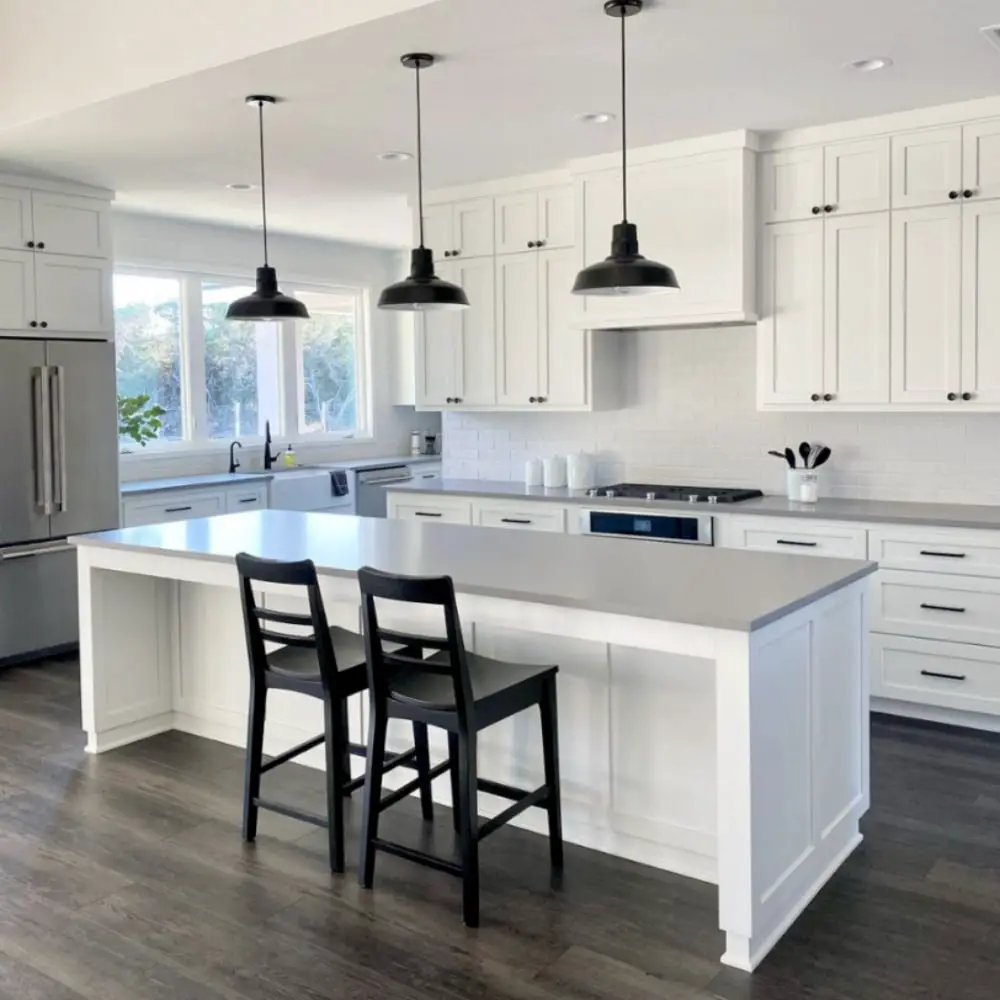
FAQ Section
Is concrete good for countertops?
Yes, concrete is excellent for countertops due to its durability and customizability.
What are the negatives of concrete countertops?
They can be heavy, porous, and require regular maintenance.
Are concrete countertops cheaper than granite?
Depending on customization, the cost varies, but concrete can be comparable or less expensive.
What kind of concrete do you use for countertops?
High-strength, specially formulated concrete mixes are used for countertops.
What kind of cement is used for concrete countertops?
Portland cement is typically used, often in combination with various admixtures.
Is Concrete for You?
Concrete countertops are reshaping kitchen and bathroom remodeling with their blend of practicality and aesthetic versatility. As a customizable, durable, and stylish option, they cater to a wide array of design preferences, making them an increasingly popular choice among homeowners.
